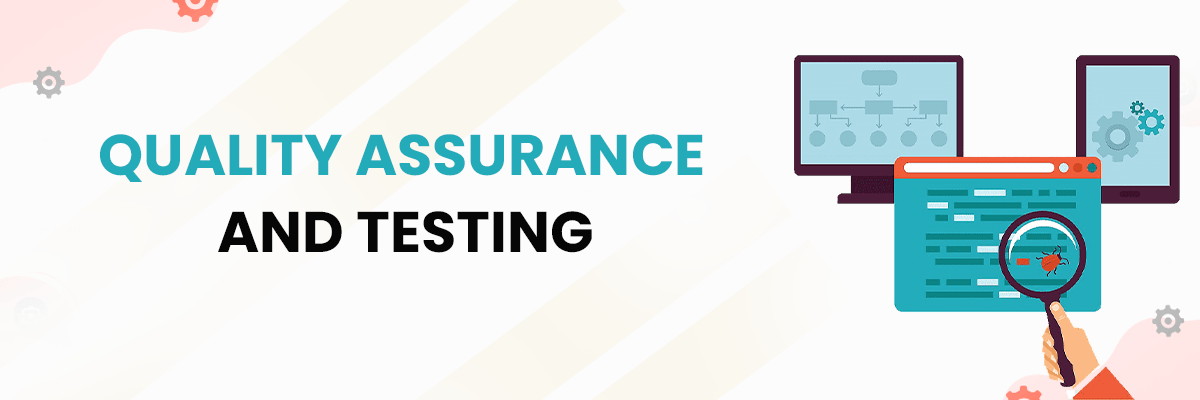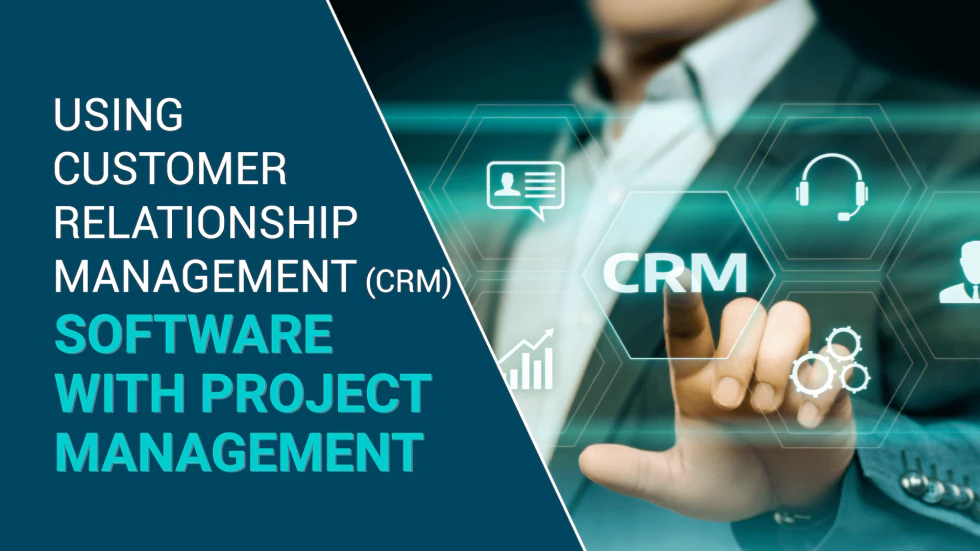If your CRM does not include Project Management, you’ll end up doing a variety of tasks manually. Consequently, manual processes will negatively impact your project’s deadlines and customers’ happiness.
Both CRM and Project Management are timeline-based software designed to record activities and their respective timelines. Project Management significantly supports CRM software in many ways. Besides, CRM software with Project Planning and Management component makes tasks easy with its scheduling and time-tracking tools.
Hence, having a project module in your CRM software allows information flow to other stakeholders and allows them to track your progress. CRM software does a job of managing customers’ information and relationships. Similarly, it is also a type of software that focuses on the external activities of a business.
On the other hand, project management helps in achieving larger business goals. Businesses often adopt CRM as a cure for their marketing and sales strategies. However, the lack of cross-function collaboration makes it difficult for teams to communicate while managing projects. Therefore, if you want to use CRM across departments including marketing and sales, combine it with project management to reach your business goals.
Importance of Project Management for CRM
Teams need CRM in Project Management to learn about their customers and achieve higher satisfaction. While CRM enables easy communication and behavior tracking of a customer, project management ensures all tasks relating to customer management are done promptly.
Following are some of the benefits companies can achieve by using Project management in CRM.
Customer Satisfaction
This combination is perfect to sustain customers. Marketing teams can track leads and accounts and keep a tap on customers’ activities while working on a project. Secondly, businesses can convert leads into loyal customers and partners. You can collect your clients’ feedback and enhance quality control. Besides, your sales and accounts teams can see and monitor the project progress in real-time.
Teamwork & Collaboration
Businesses can form a strategic alignment between accounts, sales, marketing, and customer care teams involved in customer relationship management. This collaboration can decrease uncertainty by viewing customer activities during the project. Similarly, the combination also speeds up the execution of a project by bringing teams and clients together. It also enables teams to provide notes and create tasks that result in quick closure of the sale. Moreover, it also eliminates communication barriers and centralized the entire customer and project information on a central platform.
Data-driven Decision-making
Team leaders and project managers can monitor their team’s real-time progress by providing all stakeholders with a visual view of the workflow. This enables them to view the status of tasks in the pipeline and generates accountability and focus. Similarly, the system provides data-driven insights by generating analytical reports with a 360-degree view of customer data. Eventually, the combined system supports business decisions and leads to long-term corporate growth.
Better Project Management
The system integrates all communication and allows representatives at different stages of the projects to have access to these emails. Besides, it also gives full visibility into your project eliminating confusion about who is doing what. Finally, it also allows the leadership to keep everyone in line, taking responsibility for the success of the project.
Quality Assurance and Testing

Rigorous quality assurance is paramount to guaranteeing that the CRM solution aligns with organisational objectives and user requirements. This involves a thorough testing process that spans various dimensions, including user acceptance testing, functionality testing, performance testing, and data integrity checks. The proper execution of quality assurance and testing not only validates the reliability of the CRM but also builds confidence among stakeholders. Thus, developing a smooth and effective CRM implementation that positively impacts customer interactions and business performance.
Risk Mitigation and Contingency Planning
Risk mitigation strategies are devised, involving proactive measures to either prevent risks from materialising or reduce their impact. Contingency planning, on the other hand, is the art of preparing for the unexpected, with alternative courses of action ready to deploy should a risk manifest. This dual approach not only safeguards the project’s timeline and budget but also fortifies the organisation against disruptions that could impede the seamless integration of CRM solutions. It ensures that even in the face of uncertainties, the CRM implementation remains agile, adaptable, and capable of delivering the anticipated benefits to enhance customer relationships and drive business success.
Continuous Improvement
Recognising that customer needs, technology, and business environments evolve, successful CRM implementation involves an ongoing process of refinement and enhancement. Post-implementation reviews, user feedback analysis, and performance monitoring are integral components of this iterative cycle.
Moreover, continuous improvement in CRM involves staying attuned to evolving customer expectations, embracing technological advancements, and addressing any bottlenecks or inefficiencies identified through regular assessments. This commitment to ongoing enhancement ensures that the CRM system remains aligned with organisational goals, user expectations, and industry best practices.
Cons of Excluding Project Management from Your CRM
Lack of Strategic Alignment
Project management gives direction to your CRM software. Projects tend to drift or fail to adapt to change in the face of certain risks and unaccounted situations. Good project management takes care of the final product by developing a separate framework for goal management.
Similarly, assigning separate Project Management slots helps CRM in keeping track of all the details. It also ensures that the project is part of the realignment even when the strategy changes. Hence, it is far too expensive and worse for your business if your project loses its course and fails to adapt to changes.
Compromised Leadership
Without proper Project Management, leadership may lose sight and control. When the tasks are not delineated for the team, there’s a lot of confusion about the responsibility and accountability of team members. This makes it difficult for the leadership to keep everyone on track.
Moreover, a drifted team with vague aims lacks structure and goals and becomes an unproductive lot for the company. Without Project Management in your CRM, it is difficult for the leadership to set clear objectives. Businesses also struggle to track the accomplishment of tasks by setting deadlines for one task after another.
Hence, a project can falter with this inadequacy of the leadership to have clear insights resulting in a loss of objectives.
Improper Risk Management
Without Project Management being part of CRM, It is difficult to manage risks while preventing them from becoming long-term issues. Without robust processes of project management in place, risks cannot be identified and dealt with early on as soon as they occur.
Pushing aside risks and ignoring their existence increases uncertainty and compromise the success of the project. However, Project management allows mitigation of risks y having contingency plans in place having a proactive rather than reactive approach.
Unclear Timelines and Deadlines
Excluding project management from CRM implementation introduces a significant challenge in the form of unclear timelines and deadlines. Project management provides the essential framework for setting realistic schedules, milestones, and deadlines, ensuring a structured and efficient progression of tasks.
Without this guidance, there is a risk of ambiguity surrounding project timelines, making it challenging for teams to gauge progress and stakeholders to anticipate delivery dates. The absence of a well-defined timeline can lead to delays, misalignment in expectations, and difficulties in managing resources effectively.
Limited User Training and Implementation
The exclusion of project management in CRM implementation often translates to a deficiency in comprehensive user training and implementation strategies. Successful CRM adoption hinges on the empowerment and proficiency of end-users, a facet that project management effectively addresses. This limitation can result in underutilization of the system’s capabilities, diminished user satisfaction, and a slower realization of the expected benefits.
Additionally, without a well-managed implementation plan, the integration of the CRM system into daily workflows may lack efficiency. Thus, leading to resistance among users and hindering the seamless incorporation of CRM into the organisational ecosystem.
Conclusion
CRM is often seen as a tool to manage your contacts and relationship with your client companies. It also records communication like emails etc. in form of documents. Project management, on the other hand, allows you to manage a full project life cycle by planning and organizing until the completion of a project.
Combining CRM with project management provides a holistic system that makes data accessible and promotes collaboration and teamwork. It allows everyone involved in the task to have easy access and thus improve the business process.
By having them combined, you don’t have to switch between the software to risk the loss of information as everything is centralized and accessible.
If you want to transform your business for success, contact Khired Networks by sending us an email at info@khired.com. We are a SaaS solutions provider with unmatched expertise to meet your professional requirements. Customer satisfaction is our number one priority, and we guarantee that our state-of-the-art services and products will surpass your expectations.

